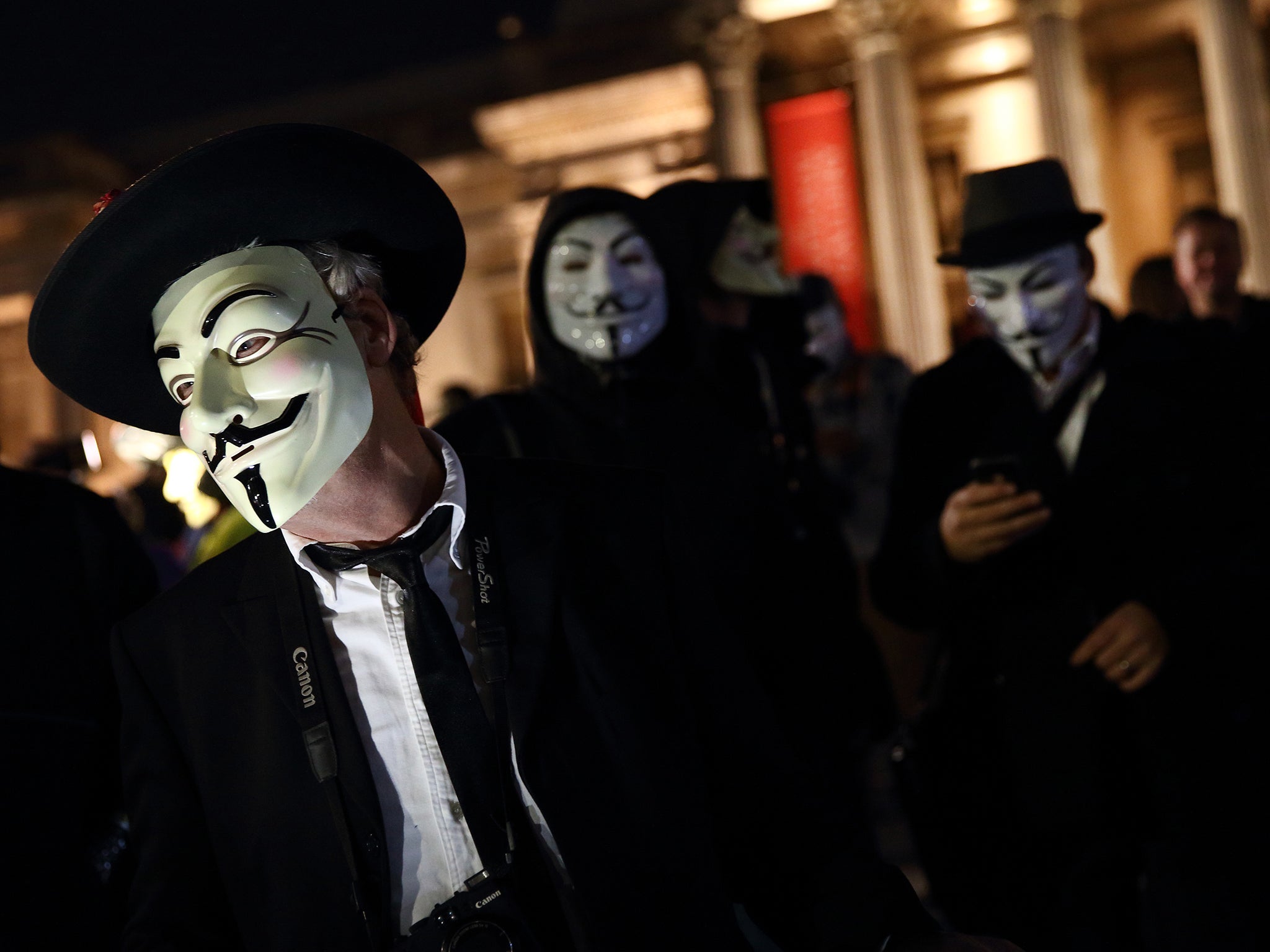If the Million Mask March wants revolution, it must look to pro-democracy movements around the world
The reason the Egyptian revolution was able to topple Mubarak is because it came together with a clear purpose

Your support helps us to tell the story
From reproductive rights to climate change to Big Tech, The Independent is on the ground when the story is developing. Whether it's investigating the financials of Elon Musk's pro-Trump PAC or producing our latest documentary, 'The A Word', which shines a light on the American women fighting for reproductive rights, we know how important it is to parse out the facts from the messaging.
At such a critical moment in US history, we need reporters on the ground. Your donation allows us to keep sending journalists to speak to both sides of the story.
The Independent is trusted by Americans across the entire political spectrum. And unlike many other quality news outlets, we choose not to lock Americans out of our reporting and analysis with paywalls. We believe quality journalism should be available to everyone, paid for by those who can afford it.
Your support makes all the difference.I was at yesterday’s Million Mask March in London, where thousands descended on Trafalgar Square donning the now infamous Guy Fawkes masks, with similar protests taking place at the same time in 481 cities across the world.
The protest, organised by Anonymous, and widely linked to other movements like Occupy and WikiLeaks, was described on the Anonymous website as a protest against austerity, the infringement of rights, mass surveillance, war crimes and corrupt politicians.
Some say these protests are unstructured, incoherent and most likely inconsequential – that’s not fair. They are a reflection of the chaotic political climate they seek to abolish. But to succeed in overhauling a corrupt system, the movement must establish clear strategic leadership and direction, like the pro-democracy revolution in Egypt in in 2011 (of course that situation since deteriorated).
If Anonymous and Occupy are to learn anything from the Arab Spring and its setbacks and failures is the need for a united front to prevent damaging splintering. Although last night’s protests were mostly peaceful with only small pockets of aggression, it is becoming increasingly apparent that these movements are growing in veracity — and can no longer be ignored by those in power.
In a political climate riddled with corruption and elitism, where social inequality is rife and there exists the largely unaddressed threat of climate change, people are angry. The fireworks set off in the middle of crowds were unnecessary and even dangerous, and my encounters with police at the protest – one aggressively chided me for trying to take photograph atop the steps of the National Gallery – were also excessive.
The tension, the expectation of violence, was palpable.
As the cold night drew on, protesters divided – some to Buckingham Palace, some to hold a symbolic sit-in in Parliament Square and others to continue their loud chanting outside Downing Street. In the absence of significant media coverage, a group of protesters made their way to BBC headquarters to express frustration at what they described as “a corrupt institution”.
I was shocked when, in an interview on BBC Radio London this morning, I was asked whether these sorts of protests had any value except to destroy. Presenter Paul Ross helpfully informed me that the Egyptian revolution, where women had a huge leading role, is to blame for their current oppression.
That’s right, a white British man told me, a non-white, Egyptian-British woman, that the oppression of women in my country is self-inflicted because people like me had the gall to protest against corruption, persecution and human rights infringements. These women admirably still continue to fight.
What this man failed to realise was that this is exactly what these toppled regimes would say. ‘What was she doing there?’ has become a staple phrase drenched in detestation against those justifying attacks on peaceful protests.
To make the movement legitimate in the eyes of the government and the media, to show those in power that this is more than the folly of random individuals converging in a space; there needs to be unity in vision, direction and demands.
Join our commenting forum
Join thought-provoking conversations, follow other Independent readers and see their replies
Comments